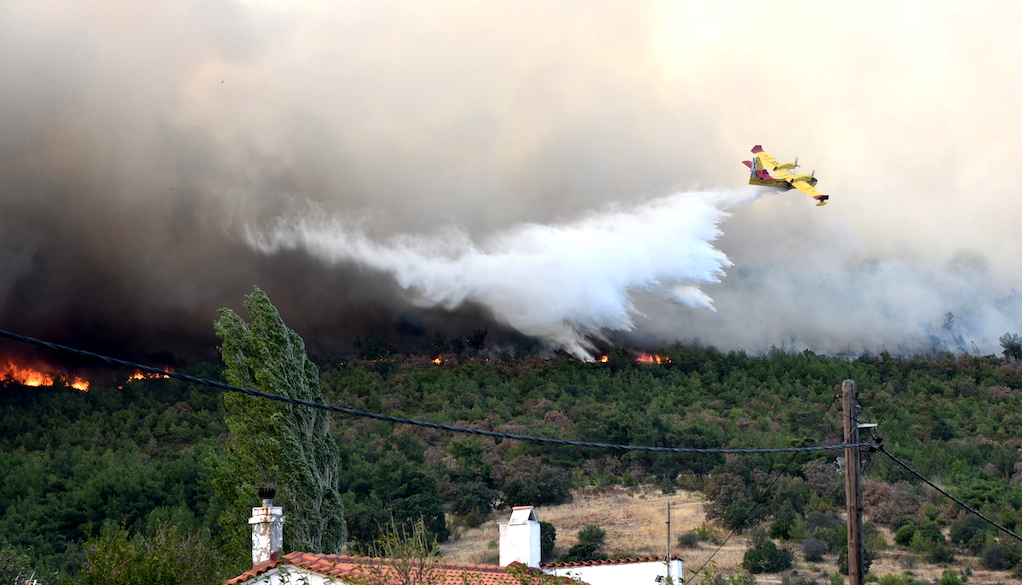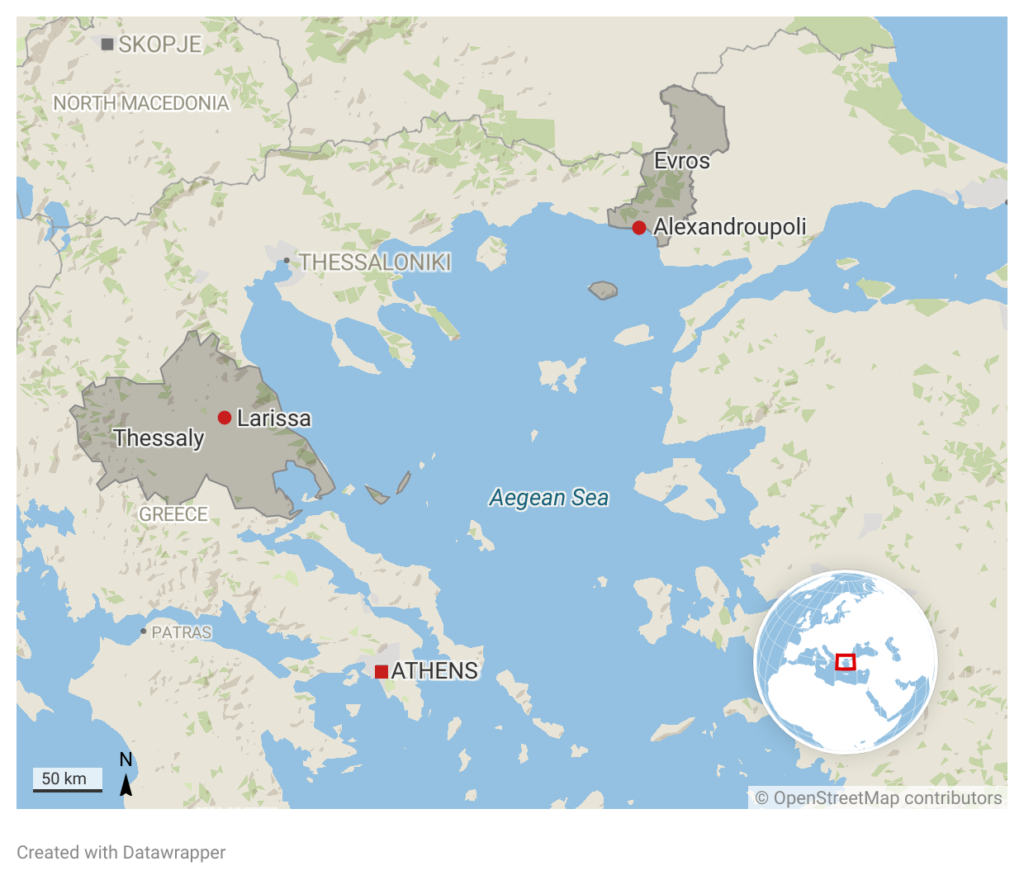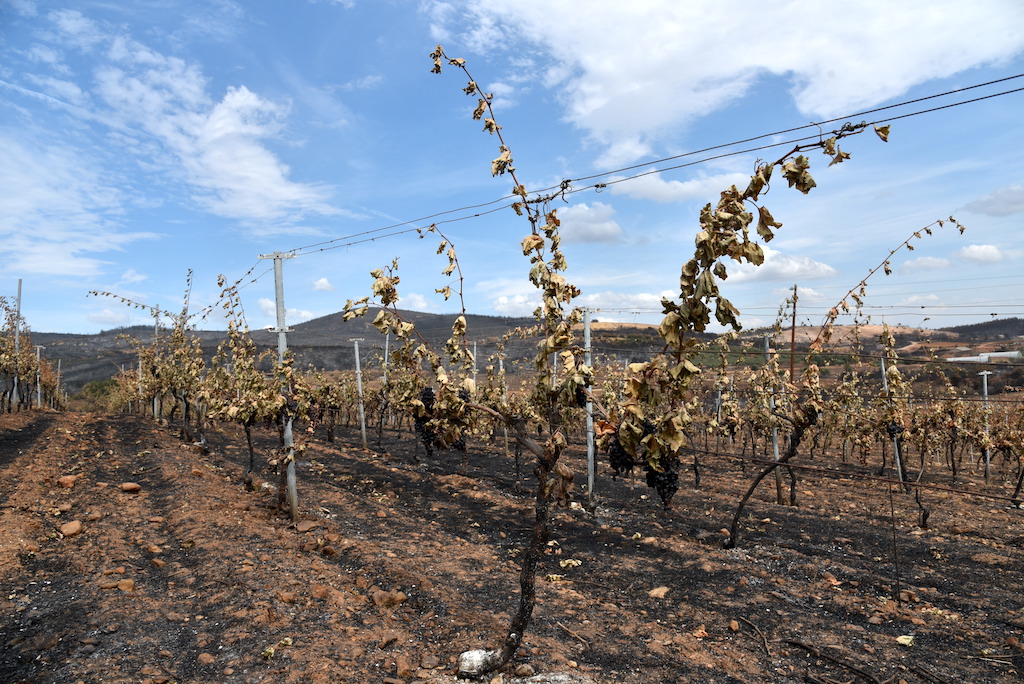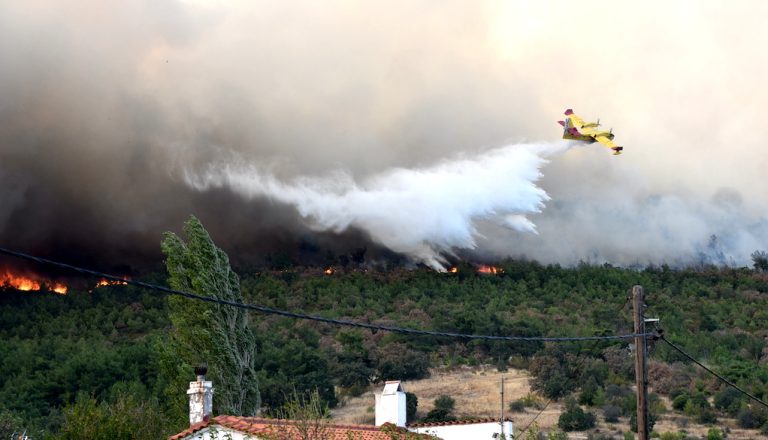Two billion euros! This may be the cost of the series of climate disasters that struck the country between mid-July and mid-September, according to estimates by Moschos Kourasidis, managing director of the National Union of Agricultural Cooperatives in Greece. Giorgos Stratakos, Secretary General of the Greek Ministry of Agriculture, agrees: “It is a global problem.”

Dadia (Evros), September 2023. A Canadair aircraft from the French civil protection team, on standby as part of a European mutual aid operation. Photo: Fabien Perrier
The fires initially swept the area around Alexandroupoli, the main city in the agricultural region of Evros in the country's northeast. They also invaded the islands of Rhodes and Corfu, and the area surrounding Mount Barnes, the green lung near the capital, Athens. Then Hurricanes Danielle and Elias swept across the plain of Thessaly, the country's breadbasket. After such devastation, what will it take to recover?

This is the question on the mind of Kyriaki Chatzisavvas, 37. A biologist by training, she left the pharmaceutical industry to grow wine in Evros. “It was a little paradise up here,” she explains, pointing at the foothills. “Now it's a disaster.” The vines were charred, the bunches of grapes withered, and ashes were scattered on the ground. The 7-hectare property emits a foul odor. It will take 5 to 10 years to return to the same level of production.
The winegrower wonders whether she will be able to continue her “biodiversity” practice. “My approach was holistic, with little human intervention,” she explains. “I even conducted an experiment with a beekeeper who placed hives around the vines. Nature regained its balance. Fires that humans failed to control wiped out biodiversity and destroyed vineyards, forests and farmland.” And olive groves.
Beekeepers are worried. Michalis, 31, had about 200 beehives that he managed to save. Honey production is my only source of income. Where will the bees feed when the fire burns everything?
This is a major concern for Pavlos Georgiadis, an ethnobotanist from Evros who teaches at the University of Hohenheim in Germany: “Bees, which are essential for pollination, no longer have anything to eat even after the hives are saved.” In this case, there is a risk of desertification. Fires have a huge impact on biodiversity! Thousands of olive trees were burned, arable land was destroyed, and animals died in the fire. The researcher continues: “Soil, air, water, biodiversity: everything is affected by these fires.”
In short, the entire ecosystem is at risk. “The biological health of the soil will be affected by floods and fires. It will be difficult to grow crops susceptible to soil-borne diseases due to excess moisture, as well as ‘root suffocation’ due to prolonged soil flooding,” explains Moskos Kourasidis. From his point of view, this deterioration of vast areas of agricultural land poses a serious threat to local and national food security. The shortage of basic crops may lead to increased dependence on imports, with negative repercussions on the country's trade balance.

Evros region, September 2023. Photography: Fabien Perrier
This warning may seem exaggerated, but the numbers give an idea of the shortages and rising prices that are now haunting Greece. In the Evros region, fires destroyed 94 thousand hectares, almost half of which were forests. 8,114 hectares of agricultural land were destroyed, i.e. 55.6% of the total area. Even centuries-old olive trees are in danger. Accounting for almost 15% of the country's agricultural land (more than 400 thousand hectares), Thessaly is a real agricultural reservoir and wheat breadbasket. Thessaly also produces 7% of the country's sugar beets, 50% of its processed tomatoes and peas, 30% of its cotton and barley, 20% of its hay used in livestock farming, and a large proportion of its fruits and vegetables.
It is the mainstay of meat, milk and cheese production. “We also have disasters in stored products, such as grains,” warns Moskos Kourasidis. In his view, “between the significant decline in food supplies on the market and the serious problems caused by speculation, the conditions are ripe for higher prices.” After ten years of economic and financial crisis, another crisis looms on the horizon, this time related to food production.

